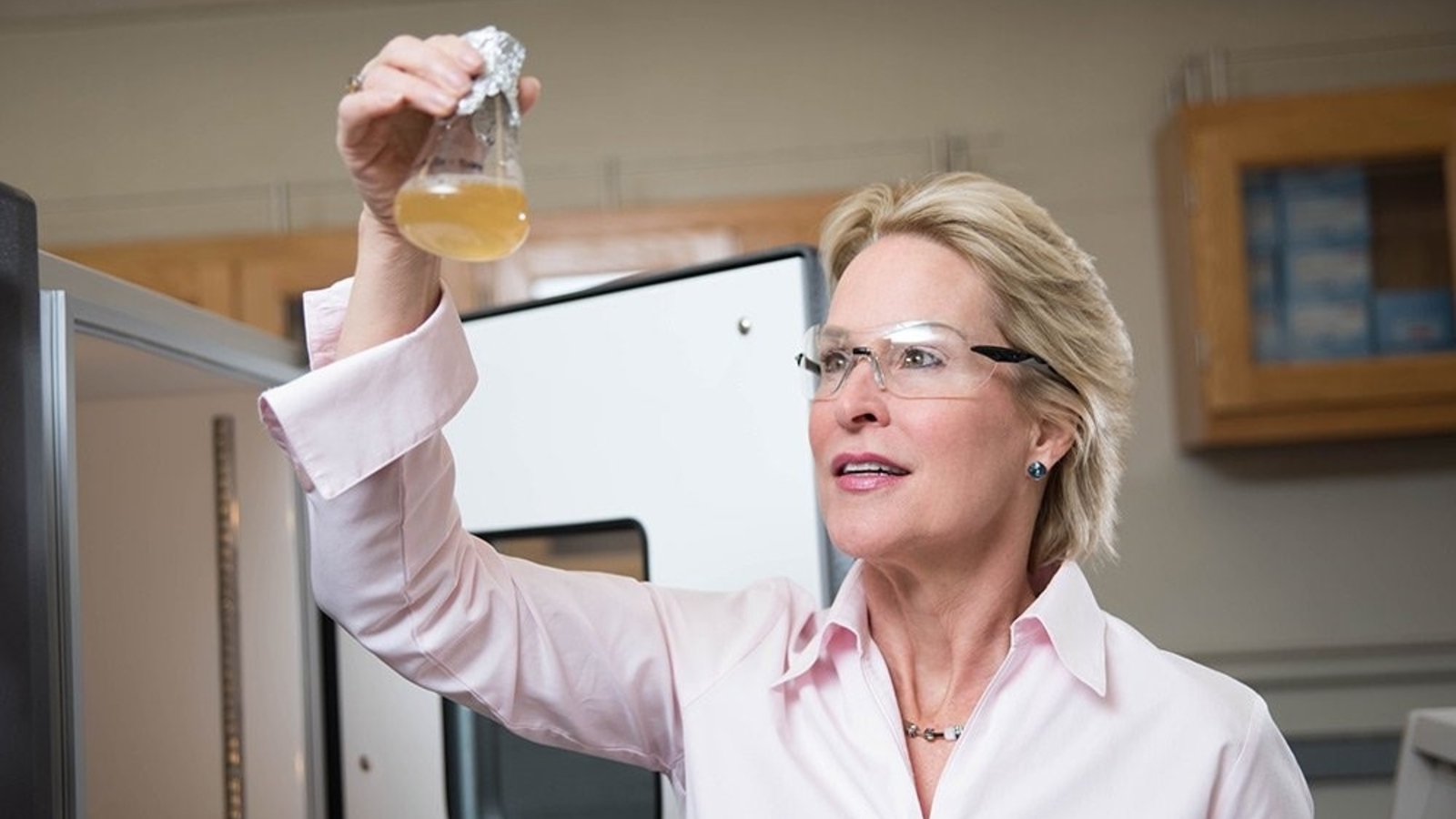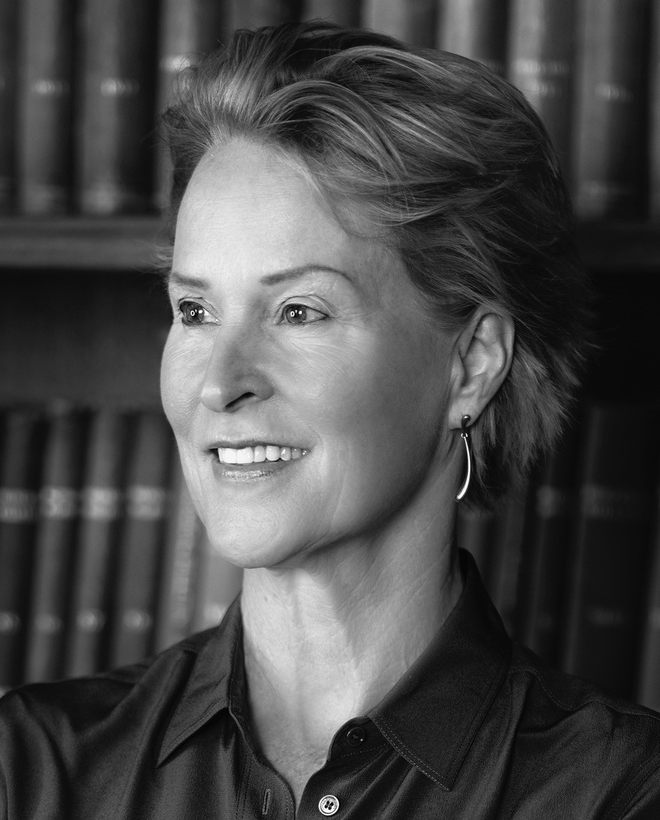Frances H. Arnold


Frances H. Arnold
Bold bioengineer, you are the inventor of the field of evolutionary chemistry, a Nobel prize winner who stunned the scientific world with your adventurous and unorthodox research. Your creation of new enzymes by directing evolutionary processes in a laboratory setting, has made possible remarkable advances for science, medicine, technology, and all of humankind. Perhaps your ability to think out-of-the-box owes something to your free-spirited youth, where you worked many jobs, traveled widely, and spent time as a cocktail waitress, cab driver, and motorcyclist, an explorer who would not be hemmed in by traditional pathways and expectations.
Yale salutes a brave, resilient, and innovative scientist whose genius has been to demonstrate that Nature and Science are unparalleled partners, as, in tribute, we award you the degree of Doctor of Science.
Frances H. Arnold, the Nobel Prize-winning chemist and professor at the California Institute of Technology, is a pioneering force in chemical engineering, bioengineering, and biochemistry. Known for her contributions to the directed evolution of enzymes, a method that allows scientists to create new enzymes with desirable properties through iterative rounds of mutation and selection, Arnold has used directed protein evolution for applications in alternative energy, chemicals, and medicine. Arnold has paved the way for breakthroughs across medicine, consumer products, agriculture, fuels, and chemicals.
Arnold’s childhood was defined by a sense of curiosity and determination cultivated through independent learning and exploration of various scientific interests. Born in east Pittsburgh, Pennsylvania, Arnold could often be found playing games with her four brothers and exploring the outdoors as much as possible. At the age of fifteen, she hitchhiked to Washington, D.C. to protest the Vietnam War. Living in Pittsburgh, she supported herself as a waitress and taxi driver before attending Princeton University where she earned her bachelor of science degree in mechanical and aerospace engineering. She traveled extensively during her student years, including taking a year off to work in and explore Spain and Italy. Following graduation, she backpacked in South America and interned in Brazil with José Goldemberg, a leading advocate of solar energy who later became Brazil’s Minister for the Environment and the father of its ethanol fuels program. Her early career at the Solar Energy Research Institute (now the National Renewable Energy Laboratory) focused on passive solar heating, but after the 1980 election shifted U.S. energy policy, Arnold pivoted to graduate studies, earning her Ph.D. in chemical engineering from the University of California, Berkeley.
“Nurture and express your curiosity, never let it go. There’s so much to explore and so much to discover.”
While her initial interest was in cellulosic biofuels, the dawn of the biotechnology industry led Arnold to take on research in bioseparations. Arnold joined the faculty at the California Institute of Technology in 1986. She decided to become an engineer of proteins, forming a lab to engineer their sequences to make them perform better in a process or application. Despite the protein engineering field’s focus on “rational design” using structure-guided computational methods, Arnold focused on engineering useful enzymes using evolution as her guide.
Today, Arnold’s lab is at the forefront of developing new methods of machine-learning guided enzyme evolution and exploring non-natural enzyme reactivities. She continues to refine and develop new approaches to protein engineering, including combining directed evolution, simulation, and machine learning to optimize enzymes and create new ones. Arnold has co-founded three companies dedicated to sustainable fuels and chemicals and serves as a director for Alphabet and Illumina.
Her leadership and influence extend beyond the laboratory. Arnold is an elected member of the National Academies of Science, Medicine, and Engineering, the American Academy of Arts and Sciences, and the American Philosophical Society. In 2019, Pope Francis appointed her to the Pontifical Academy of Sciences. She has been recognized with numerous awards, including the Charles Stark Draper Prize of the National Academy of Engineering (2011), the National Medal of Technology and Innovation (2011), and the Millennium Technology Prize (2016). Arnold served as external co-chair of the President’s Council of Advisors on Science and Technology (PCAST) for President Joe Biden, from 2021 to 2025.